
Tlemcen: The Jewel of Algeria's Northwest
Tlemcen is a city that brims with history, culture, and architectural beauty. Nestled in the mountainous region of northwest Algeria, Tlemcen is often celebrated as one of the country's most picturesque cities. Its rich heritage is a testament to the diverse civilizations that have influenced it over the centuries, from the Berbers and Arabs to the Ottomans and French. One of the main attractions in Tlemcen is its splendid array of historical sites. The Great Mosque of Tlemcen, built in the 11th century, stands as a prime example of Almoravid architecture. Nearby, the ruins of the 13th-century Mansoura offer a glimpse into the past, with its towering minaret and ancient walls. The Mechouar Palace, once the residence of the Zayyanid kings, is another must-visit site that showcases intricate Islamic art and design. Beyond its historical landmarks, Tlemcen is also known for its vibrant culture. The city hosts various festivals throughout the year, including the popular Tlemcen International Festival of Andalusian Music. The local markets, or souks, are perfect for those looking to experience traditional Algerian crafts, textiles, and cuisine. The lush El-Ourit waterfalls and the scenic Lalla Setti Plateau provide a natural retreat for visitors wanting to explore the beautiful landscapes surrounding the city.
Local tips in Tlemcen
- Visit the Great Mosque early in the morning to avoid crowds and enjoy the serene atmosphere.
- Attend the Tlemcen International Festival of Andalusian Music if your visit coincides with the event for an unforgettable cultural experience.
- Explore the local souks to find unique souvenirs and taste traditional Algerian dishes.
- Take a day trip to the El-Ourit Waterfalls for a refreshing escape in nature.
- Hire a local guide to fully appreciate the historical context and stories behind Tlemcen's many ancient sites.
Neighbourhoods in Tlemcen
Tlemcen: The Jewel of Algeria's Northwest
Tlemcen is a city that brims with history, culture, and architectural beauty. Nestled in the mountainous region of northwest Algeria, Tlemcen is often celebrated as one of the country's most picturesque cities. Its rich heritage is a testament to the diverse civilizations that have influenced it over the centuries, from the Berbers and Arabs to the Ottomans and French. One of the main attractions in Tlemcen is its splendid array of historical sites. The Great Mosque of Tlemcen, built in the 11th century, stands as a prime example of Almoravid architecture. Nearby, the ruins of the 13th-century Mansoura offer a glimpse into the past, with its towering minaret and ancient walls. The Mechouar Palace, once the residence of the Zayyanid kings, is another must-visit site that showcases intricate Islamic art and design. Beyond its historical landmarks, Tlemcen is also known for its vibrant culture. The city hosts various festivals throughout the year, including the popular Tlemcen International Festival of Andalusian Music. The local markets, or souks, are perfect for those looking to experience traditional Algerian crafts, textiles, and cuisine. The lush El-Ourit waterfalls and the scenic Lalla Setti Plateau provide a natural retreat for visitors wanting to explore the beautiful landscapes surrounding the city.
When is the best time to go to Tlemcen?
Iconic landmarks you can’t miss
Beni Add Ain Fezza Caves
Discover the stunning Beni Add Ain Fezza Caves in Algeria, a natural wonder with breathtaking formations and rich history.
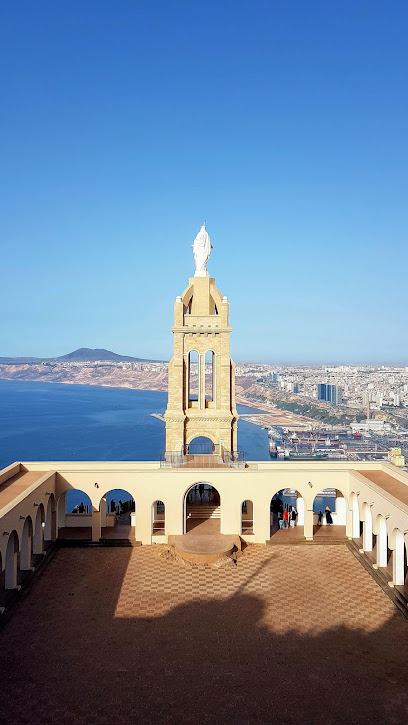
ibis Tlemcen
Explore the wonders of Tlemcen from the comfort of Ibis Tlemcen, your ideal base for cultural immersion and relaxation.

Leisure Park Lalla Setti
Experience fun and panoramic views at Tlemcen's mountaintop amusement park, offering rides, nature, and cultural attractions for all ages.
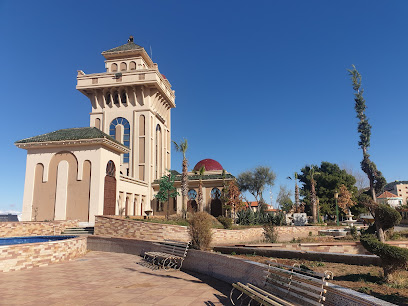
El Ourit Waterfalls
Escape to the tranquil beauty of El Ourit Waterfalls near Tlemcen, Algeria, where cascading waters meet lush landscapes for a refreshing natural retreat.
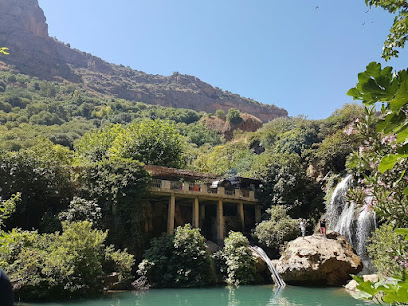
The Remains of Mansura Tlemcen
Step back in time at Mansura Tlemcen, where the ruins whisper tales of sieges, sultans, and a city that rose from a military camp.
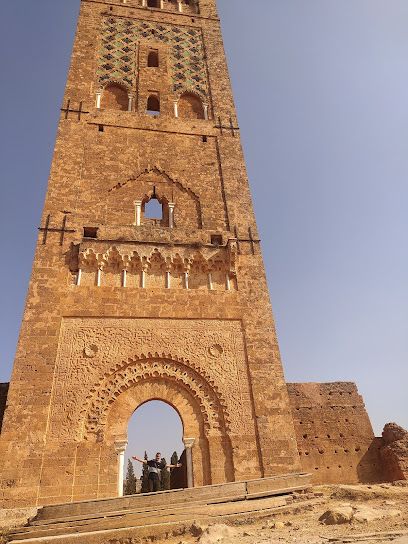
El Mechouar Palace
Explore El Mechouar Palace in Tlemcen, a royal residence with centuries of Algerian history, architecture, and cultural significance.
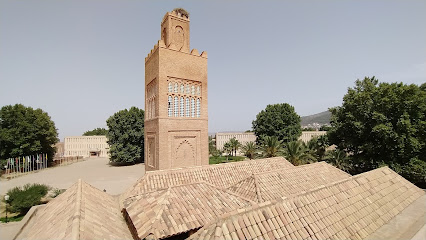
Great Mosque
Explore the Great Mosque of Tlemcen, a stunning example of Almoravid architecture and a symbol of Algeria's rich Islamic heritage.
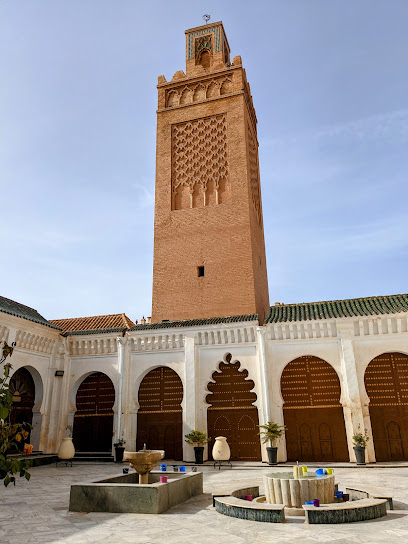
مسجد سيدي بومدين Sidi Boumediene Mosque
Explore the Sidi Boumediene Mosque in Tlemcen, a stunning example of Islamic architecture and a center for spiritual reflection and cultural enrichment.
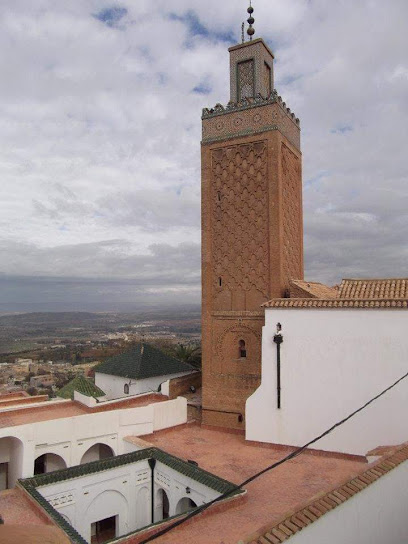
Tlemcen National Park
Discover Algeria's natural gem: Tlemcen National Park, where stunning landscapes meet rich history and diverse wildlife.
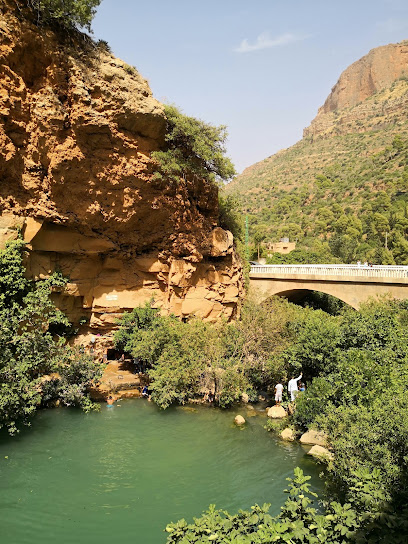
Palace of Culture
Explore art, history, and culture at Tlemcen's premier exhibition center, a modern hub in a historic city.
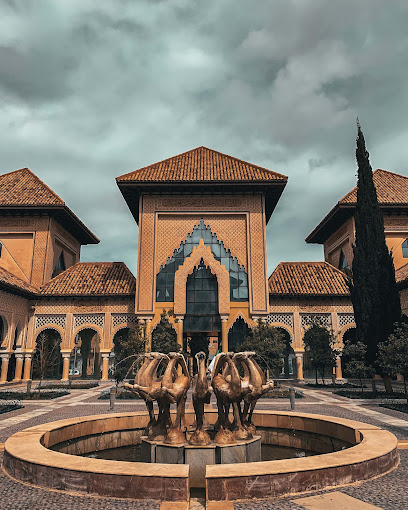
Aventura club
Experience adventure sports and cultural tours at Aventura Club in Tlemcen, Algeria. Explore the mountains and local heritage!
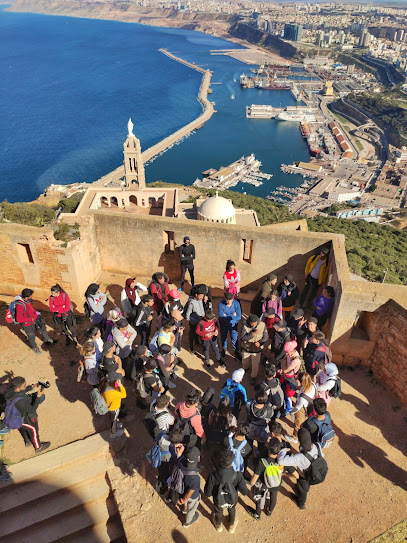
Monument AHMED BEN BELLA
Honoring Algeria's first president, Ahmed Ben Bella, this Tlemcen monument symbolizes the nation's fight for independence and offers stunning views.
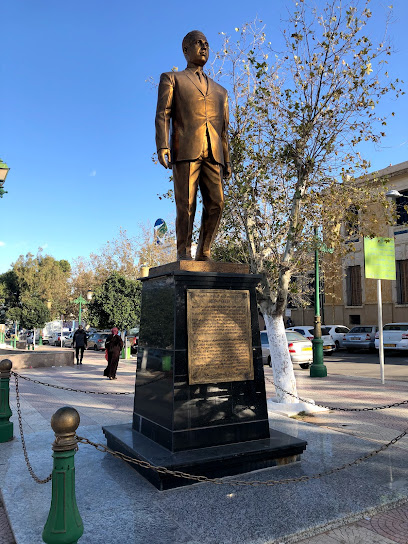
Sidi El Haloui Mosque
Explore the serene beauty and historical significance of Sidi El Haloui Mosque, a Marinid-era architectural gem in the heart of Tlemcen, Algeria.

Direction du tourisme et de l'artisanat Tlemcen
Discover Tlemcen's rich history, culture, and artisan traditions at the Direction du Tourisme – your gateway to an unforgettable Algerian experience.

ساحة الشهداء
Discover ساحة الشهداء in Tlemcen: a place of remembrance and community, reflecting Algeria's history and the spirit of its people.

Unmissable attractions to see
Beni Add Ain Fezza Caves
Discover Algeria's largest cave network, filled with stunning geological formations and rich history, in the heart of Ain Fezza.
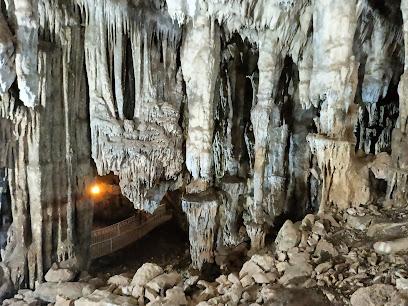
Lalla Setti Plateau
Experience breathtaking panoramic views and serene beauty at Lalla Setti Plateau, a must-visit destination in Tlemcen, Algeria. A perfect blend of nature and history.
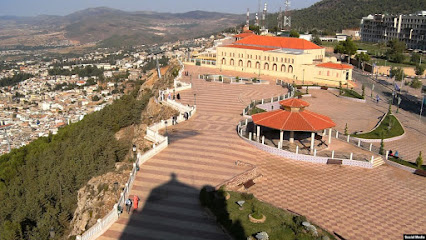
Leisure Park Lalla Setti
Experience thrills and panoramic views at Tlemcen's mountaintop amusement park, a perfect escape for families and adventure seekers.
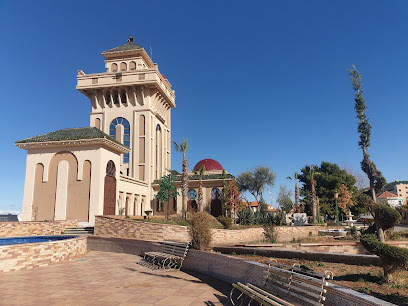
El Ourit Waterfalls
Discover the natural splendor of El Ourit Waterfalls near Tlemcen, Algeria, offering serene landscapes and refreshing escapes for nature enthusiasts.
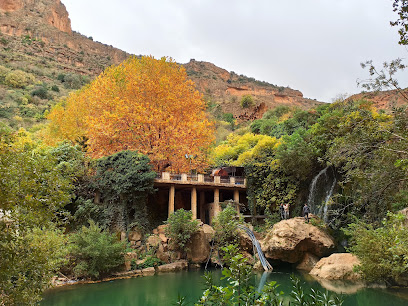
El Mechouar Palace
Discover El Mechouar Palace in Tlemcen, a royal residence with centuries of Algerian history, architecture, and cultural significance.
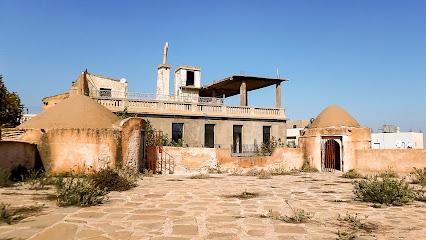
The Remains of Mansura Tlemcen
Explore the captivating ruins of Mansura Tlemcen, a historical landmark showcasing Algeria's medieval past and architectural heritage.
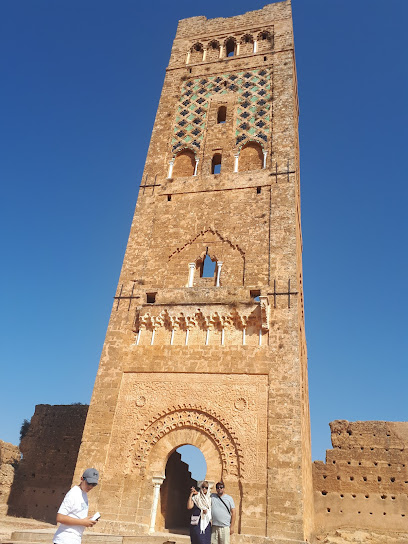
El Mechouar Palace
Explore El Mechouar Palace in Tlemcen, a royal residence with centuries of Algerian history, architecture, and cultural significance.
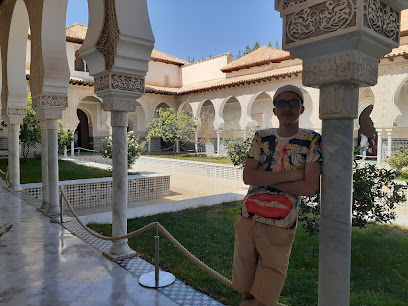
Grand Bassin
Discover the historic Grand Bassin in Tlemcen: a royal reservoir turned public garden, offering a serene escape and cultural experiences.
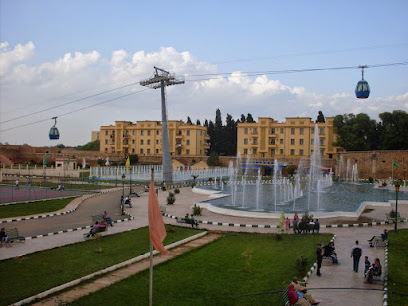
مسجد سيدي بومدين Sidi Boumediene Mosque
Explore the spiritual and architectural beauty of Sidi Boumediene Mosque in Tlemcen, a historic Islamic complex dedicated to a revered Sufi saint.
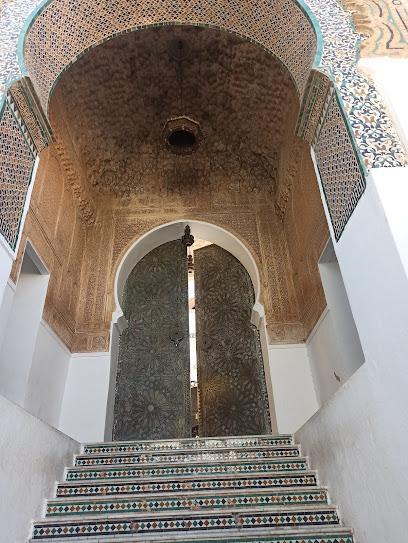
مسجد سيدي بومدين Sidi Boumediene Mosque
Explore the Sidi Boumediene Mosque in Tlemcen, a stunning blend of Islamic and Andalusian architecture, rich history, and spiritual significance.
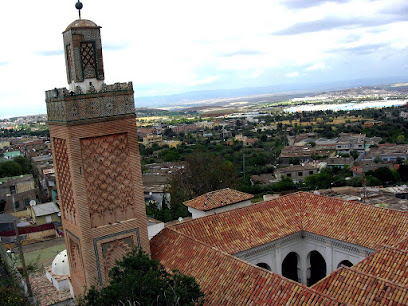
Tlemcen National Park
Discover Algeria's natural gem: Tlemcen National Park, where stunning landscapes meet rich history and diverse wildlife in a Mediterranean climate.
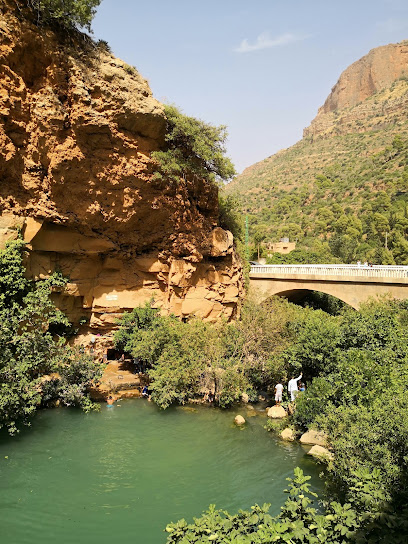
Hartoun Park
Escape to tranquility in Tlemcen's Hartoun Park: lush greenery, peaceful walks, and a serene natural retreat in the city center.
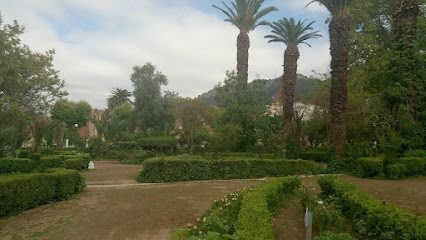
Aventura club
Experience adventure sports and cultural tours at Aventura Club in Tlemcen, Algeria. Explore the mountains and local heritage!

tlemcen National Park
Explore Algeria's Tlemcen National Park: where stunning landscapes meet rich history and diverse wildlife. A natural and cultural treasure.
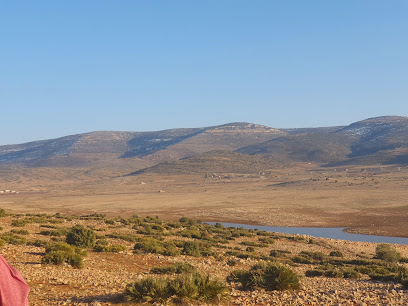
Bateau pirate
Experience thrilling amusement park fun with panoramic views at Bateau Pirate on Tlemcen's scenic Lalla Setti Plateau.
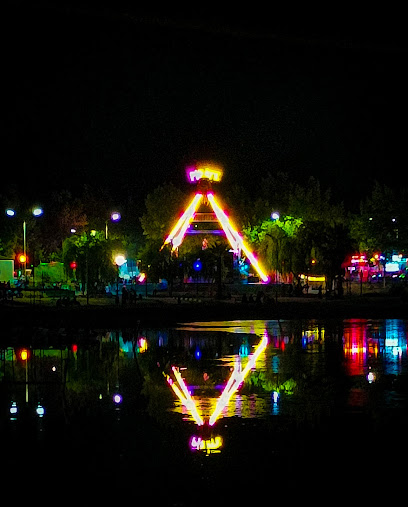
Essential places to dine
L'échappatoire
Discover the essence of Mediterranean flavors at L'échappatoire in Tlemcen, where tradition meets modern culinary artistry.
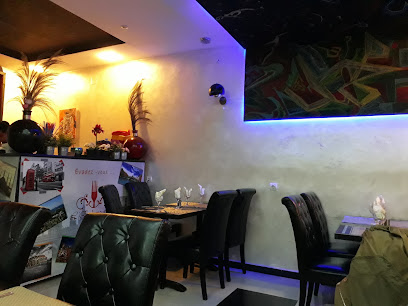
L'équinoxe
Discover the essence of Mediterranean cuisine at L'équinoxe in Tlemcen - where tradition meets flavor.
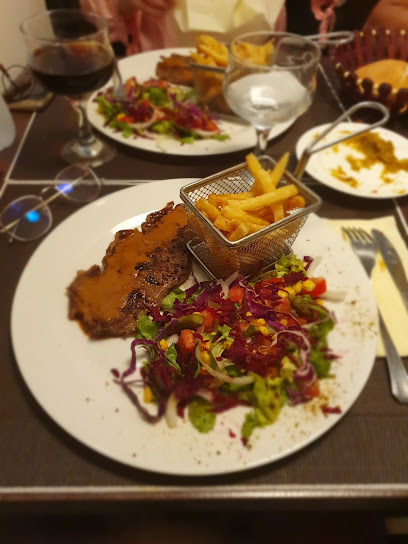
Ambiance Resto Café Hartoum
Discover culinary bliss at Ambiance Resto Café in Tlemcen – where tradition meets taste in every dish.
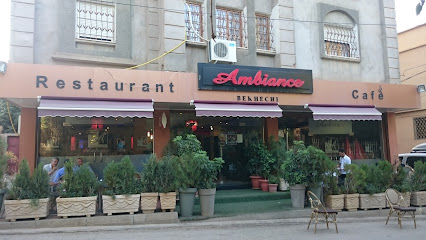
LE CINQ
Experience delightful pizzas and Mediterranean cuisine at Le Cinq, where every meal is a taste of local tradition in Tlemcen.
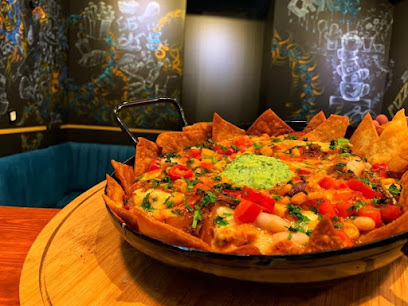
Le Loft
Discover the flavors of Mediterranean cuisine at Le Loft in Tlemcen, where authentic dishes meet a warm atmosphere.
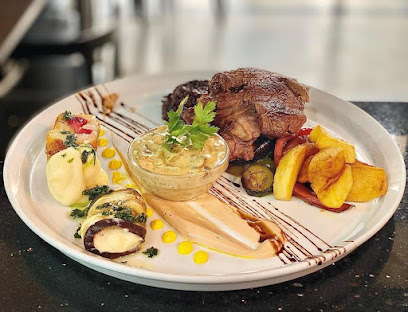
Latina House Restaurant
Discover authentic Algerian cuisine at Latina House Restaurant in Tlemcen – where tradition meets flavor in every dish.
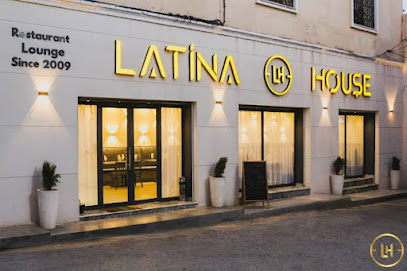
Restaurant Best Chicken
Experience authentic Algerian cuisine at Restaurant Best Chicken in Tlemcen – where every bite tells a story.
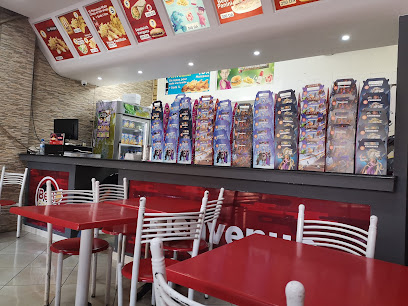
PARADISE
Savor authentic Mediterranean flavors at Paradise in Tlemcen – where culinary excellence meets warm hospitality.
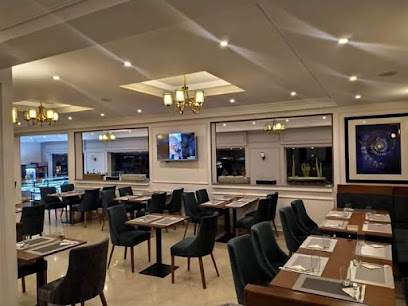
Le Gourmet
Experience authentic Mediterranean cuisine at Le Gourmet in Tlemcen—where every meal tells a story of flavor and tradition.
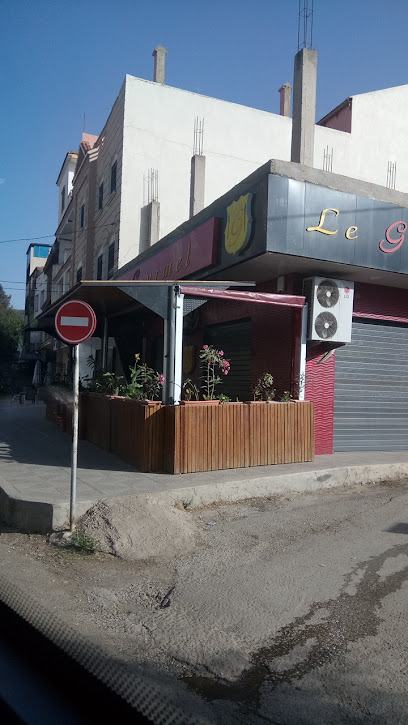
Pizzeria Felicita Tlemcen
Discover authentic Italian flavors at Pizzeria Felicita in Tlemcen – where every bite feels like a trip to Italy!
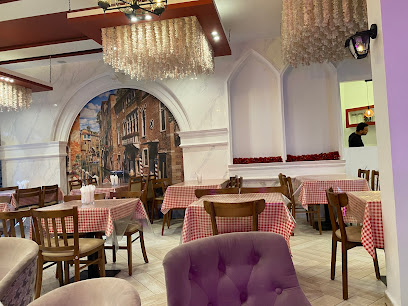
Restaurant Le Pizz’Wich
Experience delightful Italian cuisine at Restaurant Le Pizz’Wich in Tlemcen - a must-visit for pizza enthusiasts.
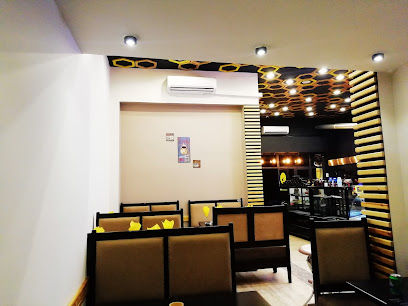
Aux Délices +
Discover the authentic taste of Mediterranean cuisine at Aux Délices + in Tlemcen - where every meal is a celebration of flavor.
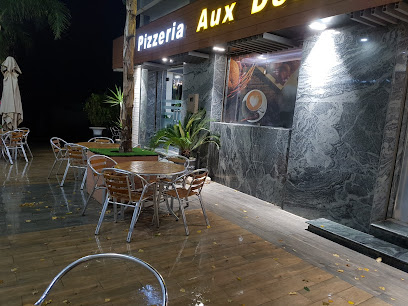
Le musée
Experience authentic Mediterranean flavors at Le musée in Tlemcen - a culinary haven showcasing local ingredients and rich traditions.
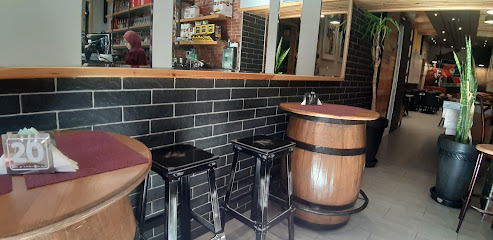
Aranis Turkish Food
Discover authentic Turkish flavors at Aranis Turkish Food in Tlemcen—where delicious cuisine meets vibrant culture.
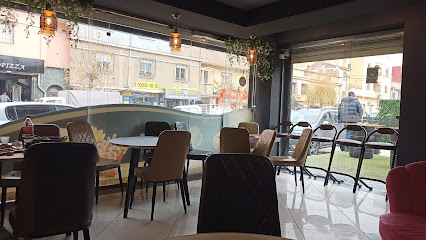
Abou - Le bon goût
Discover authentic Algerian cuisine at Abou - Le bon goût in Tlemcen, where tradition meets culinary excellence.
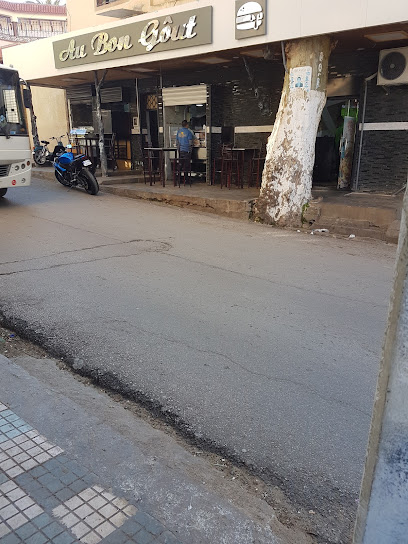
Markets, malls and hidden boutiques
Shopping Queen TLEMCEN
Explore the vibrant fashion scene at Shopping Queen Tlemcen, your go-to destination for trendy women's clothing and unique accessories.
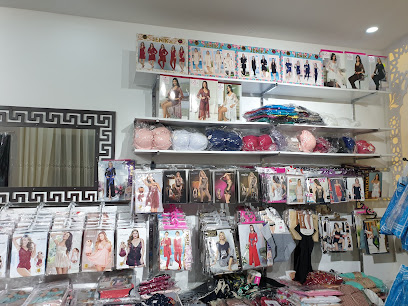
Bijoux Tlemcen
Explore Bijoux Tlemcen, your ultimate destination for exquisite jewelry and unique gifts that reflect the heart of Algerian craftsmanship.
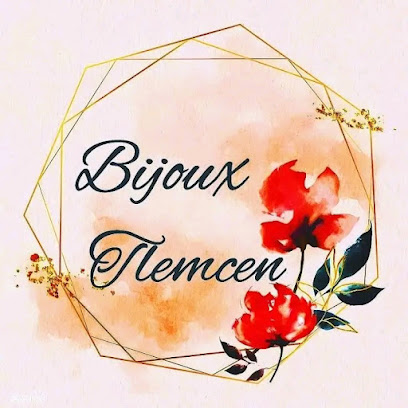
Boutique prestige13
Explore Boutique Prestige in Tlemcen for a unique selection of contemporary fashion, perfect for stylish travelers and locals alike.
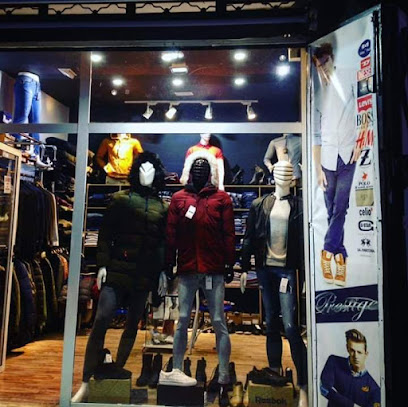
boutique el mejor
Discover unique fashion at Boutique El Mejor in Kiffane, where style meets tradition in an exquisite selection of clothing and accessories.
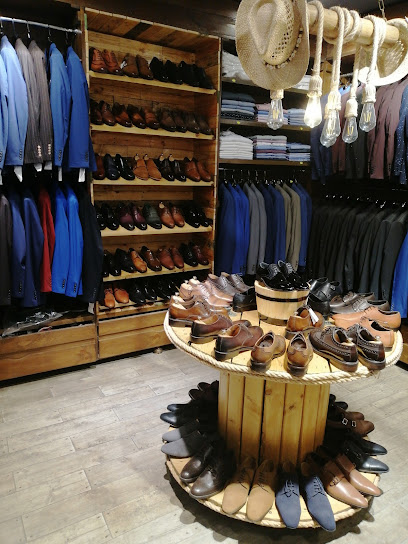
بيت الهدية تلمسان ( باب الجياد)
Explore the exquisite jewelry craftsmanship at بيت الهدية تلمسان, a cultural gem in Tlemcen offering unique, handcrafted pieces.
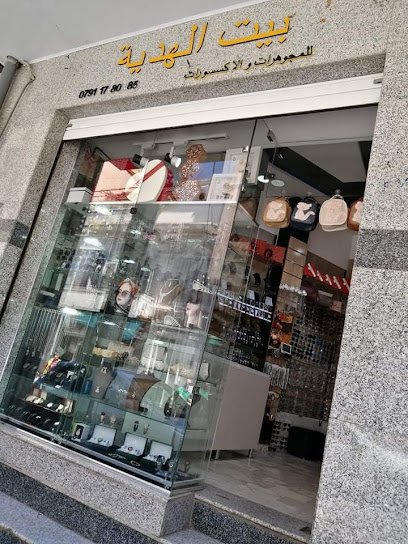
Sports Articles Shop
Discover the best sports articles in Tlemcen, where quality meets affordability for every sports enthusiast.
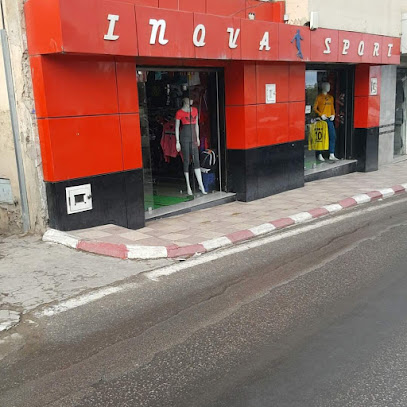
Boutique tendance tlemcen
Explore the stylish offerings of Boutique Tendance Tlemcen, where local fashion meets contemporary trends in a charming setting.
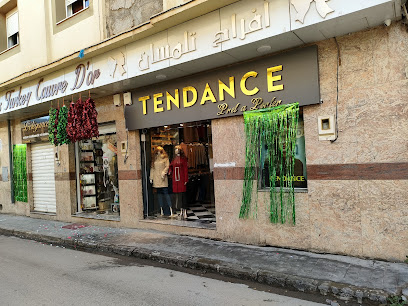
Boutique Amine Tlemcen
Discover Boutique Amine Tlemcen, where local craftsmanship meets contemporary fashion in a unique shopping experience.
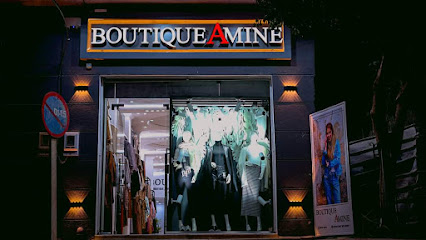
Achra
Explore Achra in Tlemcen for a unique blend of local and contemporary fashion that captures the essence of Algerian style.
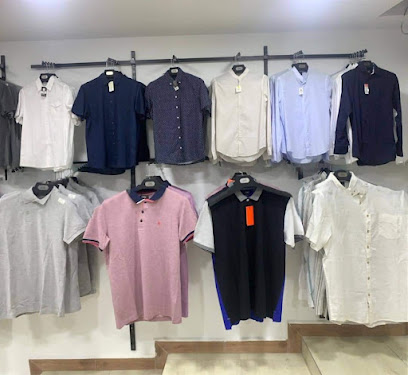
Boutique S&N
Explore the chic and traditional women's fashion at Boutique S&N in Tlemcen, where elegance meets local culture.
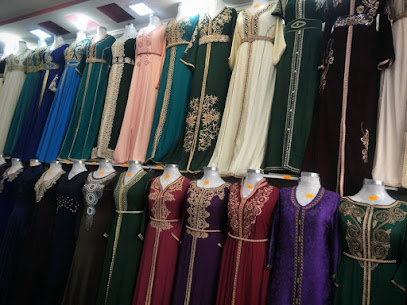
Boutique ranime
Discover stylish and durable luggage at Boutique Ranime in Tlemcen, where quality meets elegance for the discerning traveler.
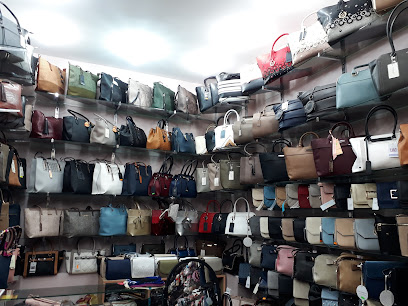
Boutique Sarah tlemcen
Explore the charm of Tlemcen's fashion scene at Boutique Sarah, where unique styles and local culture come together in perfect harmony.
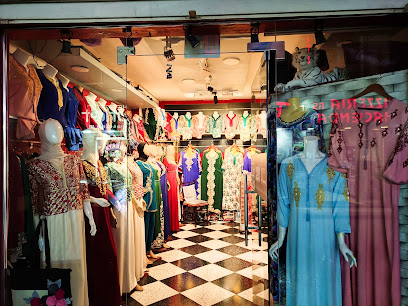
Boutique Wolf
Explore unique clothing and accessories at Boutique Wolf in Tlemcen, where style meets tradition in a charming shopping experience.
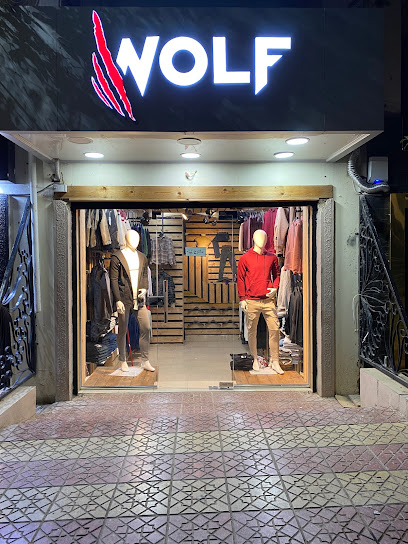
bouhjer
Explore Bouhjer in Tlemcen - A boutique experience blending local artistry and cultural heritage for an unforgettable shopping journey.

Olala Tlemcen
Explore Olala Tlemcen, a vibrant shopping mall in Tlemcen, Algeria, offering unique crafts, delicious food, and a taste of local culture.

Essential bars & hidden hideouts
L'échappatoire
Discover the vibrant flavors of the Mediterranean at L'échappatoire, Tlemcen's premier dining destination, known for its rich dishes and warm ambiance.
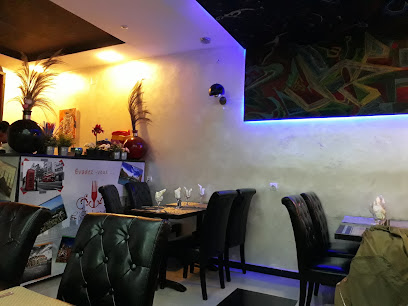
L'équinoxe
Discover the essence of Mediterranean cuisine at L'équinoxe in Tlemcen, where every meal is a celebration of flavors and traditions.
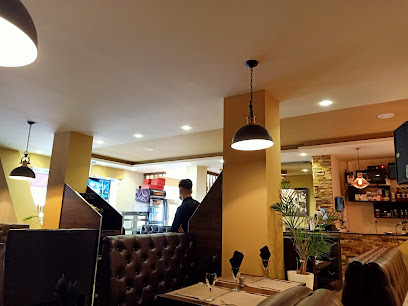
Ambiance Resto Café Hartoum
Discover the rich flavors and inviting ambiance at Ambiance Resto Café Hartoum, a premier dining destination in Tlemcen, Algeria.
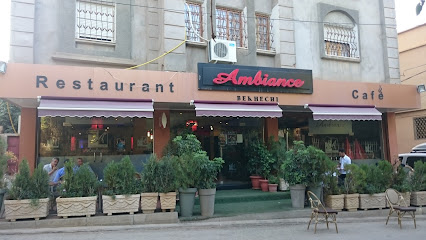
LE CINQ
Discover the taste of Tlemcen at Le Cinq, where Mediterranean flavors meet exceptional pizza in a cozy atmosphere.
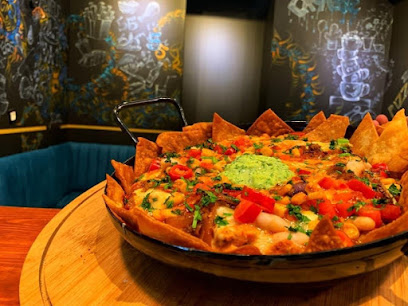
Le Loft
Discover the culinary treasures of Mediterranean cuisine at Le Loft in Tlemcen, where every meal is an extraordinary experience.
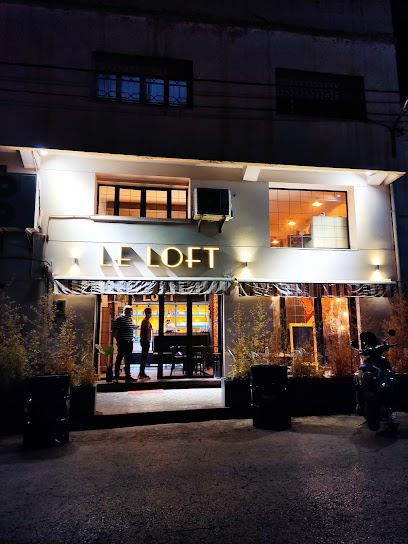
L'Équinoxe
Discover the flavors of Mediterranean cuisine at L'Équinoxe in Tlemcen, where every meal is a taste of local tradition and culinary excellence.
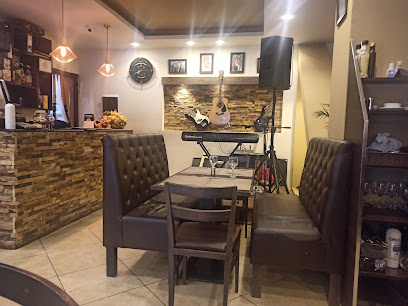
Plöofy
Discover Plöofy in Mansourah – your go-to spot for delicious dairy treats, delightful crepes, and refreshing cocktails in a cozy atmosphere.
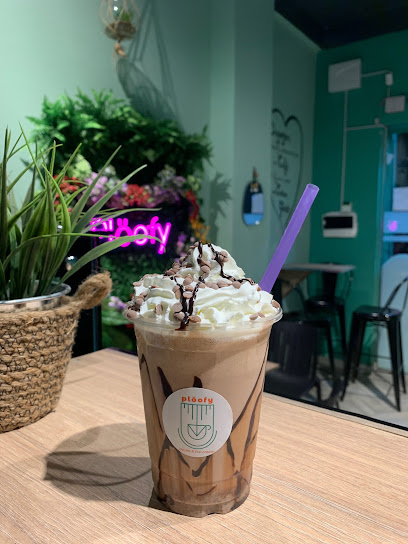
Capitol Lounge
Experience the rich flavors of Algerian cuisine at Capitol Lounge in Tlemcen, where delicious food meets an inviting atmosphere.
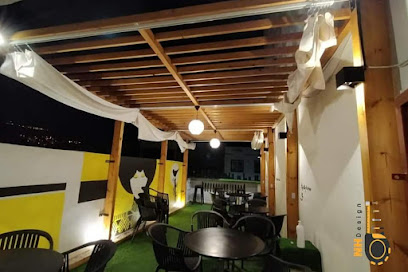
le Galaxy
Experience authentic Mediterranean cuisine at le Galaxy in Tlemcen, where every dish tells a story of rich flavors and culinary tradition.

Saloon Pizzeria & Lounge
Experience authentic Italian dining at Saloon Pizzeria & Lounge in Tlemcen, where every meal is a celebration of flavors and good company.
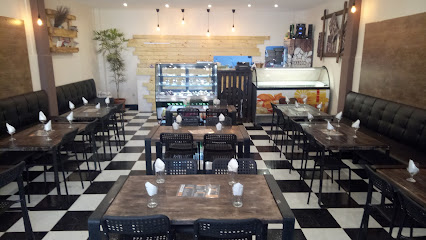
Amigo Juice Bar
Experience the refreshing taste of Tlemcen at Amigo Juice Bar, your go-to spot for delicious juices and smoothies.
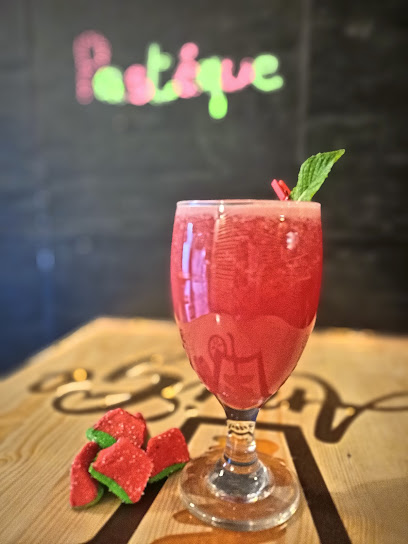
Billard club
Discover the lively billiard scene in Tlemcen, where friendly matches and local culture come together in a vibrant atmosphere.

BEN PUB
Experience the vibrant culture of Tlemcen at Ben Pub, where locals and tourists unite in a lively social atmosphere filled with warmth and charm.
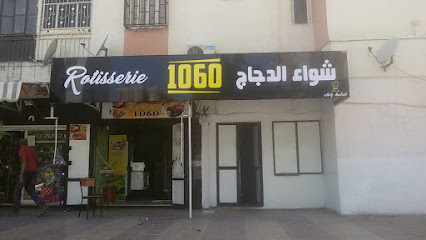
Hébergement tlemcen
Experience the vibrant local culture at Hébergement Tlemcen, a charming bar in Mansourah, Algeria, perfect for relaxation and socializing.

Local Phrases
-
- Helloمرحبا
[Marhaba] - Goodbyeوداعا
[Wadaan] - Yesنعم
[Naam] - Noلا
[La] - Please/You're welcomeمن فضلك
[Min fadlik] - Thank youشكرا
[Shukran] - Excuse me/Sorryعذرا
[Aathir] - How are you?كيف حالك؟
[Kayfa halak?] - Fine. And you?بخير. وأنت؟
[Bekheir. Wa anta?] - Do you speak English?هل تتحدث الإنجليزية؟
[Hal tatahadath al'injlizia?] - I don't understandأنا لا أفهم
[Ana la afham]
- Helloمرحبا
-
- I'd like to see the menu, pleaseأريد أن أرى القائمة، من فضلك
[Aridu an ara alqaimah, min fadlik] - I don't eat meatأنا لا آكل اللحم
[Ana la aakul allahm] - Cheers!صحتك!
[Sahhtak!] - I would like to pay, pleaseأود أن أدفع، من فضلك
[Awadu an adfa, min fadlik]
- I'd like to see the menu, pleaseأريد أن أرى القائمة، من فضلك
-
- Help!مساعدة!
[Musaadah!] - Go away!انصرف!
[Ansurif!] - Call the Police!اتصل بالشرطة!
[Itsal bilshurta!] - Call a doctor!اتصل بطبيب!
[Itsal bitabib!] - I'm lostلقد ضللت الطريق
[Lakad dalalt altariq] - I'm illأنا مريض
[Ana mareed]
- Help!مساعدة!
-
- I'd like to buy...أريد أن أشتري...
[Aridu an ashtari...] - I'm just lookingأنا فقط أتفرج
[Ana faqat atfarij] - How much is it?بكم ثمنه؟
[Bikam thamanuh?] - That's too expensiveهذا غالي جدا
[Hatha ghaali jiddan] - Can you lower the price?هل يمكنك خفض السعر؟
[Hal yumkinuk kaff alsiar?]
- I'd like to buy...أريد أن أشتري...
-
- What time is it?كم الساعة؟
[Kam alsaa'a?] - It's one o'clockالساعة الواحدة
[Alssaa'a alwahidah] - Half past (10)الساعة العاشرة والنصف
[Alssaa'a alaashirah walnisf] - Morningالصباح
[Assabah] - Afternoonالظهر
[Adhuhr] - Eveningالمساء
[Almasa] - Yesterdayأمس
[Ams] - Todayاليوم
[Alyawm] - Tomorrowغدا
[Ghadan] - 1واحد
[Wahid] - 2اثنان
[Ithnan] - 3ثلاثة
[Thalatha] - 4أربعة
[Arba'a] - 5خمسة
[Khamsa] - 6ستة
[Sitta] - 7سبعة
[Sab'a] - 8ثمانية
[Thamaniah] - 9تسعة
[Tas'ah] - 10عشرة
[Asharah]
- What time is it?كم الساعة؟
-
- Where's a/the...?أين...
[Ayna...] - What's the address?ما هو العنوان؟
[Ma huwa al'anaan?] - Can you show me (on the map)?هل يمكنك أن تريني (على الخريطة)؟
[Hal yumkinuk an tareeni (ala alkharitat)?] - When's the next (bus)?متى يأتي الحافلة التالية؟
[Mata yaati alhafilat altalia?] - A ticket (to ....)تذكرة (إلى ...)
[Tathkira (ila ...)]
- Where's a/the...?أين...
History of Tlemcen
-
Tlemcen, originally known as Pomaria, was founded by the Romans in the 4th century AD. It was initially a military outpost, but its strategic location soon made it an important commercial hub connecting the Mediterranean with the inner regions of North Africa.
-
In the 11th century, Tlemcen gained prominence under the Almoravid Dynasty, which established it as a crucial center for trade and scholarship. The city saw the construction of many key structures, including the Great Mosque of Tlemcen, which remains an architectural marvel.
-
Tlemcen reached its zenith during the reign of the Zayyanid Dynasty from the 13th to the 16th century. As the capital of the Kingdom of Tlemcen, it flourished economically and culturally. The city became renowned for its textiles, leatherwork, and especially its ivory and gold crafts. The Zayyanid kings also fostered a rich cultural life, attracting scholars, poets, and artists.
-
In 1299, the Marinid Sultanate of Morocco laid siege to Tlemcen, resulting in a prolonged conflict that lasted for several decades. Despite the siege, the city managed to resist and maintained its independence, thanks to its formidable fortifications and resilient inhabitants.
-
In the 16th century, Tlemcen fell under Ottoman control, becoming part of the Ottoman Regency of Algiers. During this period, the city experienced a decline as regional power shifted to Algiers. Nevertheless, Tlemcen continued to be a significant local center for trade and culture.
-
Tlemcen came under French colonial rule in 1842. The French administration undertook numerous infrastructure projects, including the construction of roads and railways, which modernized the city but also led to social and economic changes. The colonial period saw the introduction of European architectural styles, which blended with the city's traditional Islamic and Berber influences.
-
After Algeria gained independence in 1962, Tlemcen began to reclaim its historical and cultural heritage. The city has since invested in preserving its ancient monuments and revitalizing its cultural institutions. Today, Tlemcen is a vibrant city that proudly showcases its rich history through its well-preserved landmarks, museums, and bustling souks.
Tlemcen Essentials
-
Tlemcen is accessible via Tlemcen Zenata – Messali El Hadj Airport, located approximately 22 km from the city center. This airport handles domestic flights and a few international connections. Alternatively, you can fly into Algiers Houari Boumediene Airport and take a domestic flight or travel by train or bus to Tlemcen. The train journey from Algiers to Tlemcen takes around 8 hours and offers scenic views of Algeria's landscape. Buses are also available and provide a more budget-friendly option.
-
Within Tlemcen, taxis and buses are the primary modes of transportation. Taxis are relatively affordable and can be hailed on the street or booked via phone. Public buses cover most parts of the city and are an economical way to get around. For more convenience, you can rent a car from local rental services, but be aware of local driving conditions and traffic rules.
-
The official currency in Algeria is the Algerian Dinar (DZD). Credit and debit cards are accepted at major hotels, restaurants, and shops, but it's advisable to carry cash, especially when visiting markets and smaller establishments. ATMs are widely available in Tlemcen, but ensure you have some cash on hand for emergencies or in areas where card payments are not accepted.
-
Tlemcen is generally considered safe for tourists, but standard precautions should always be taken. Avoid isolated areas after dark and keep your belongings secure in crowded places. While Tlemcen does not have specific high-crime areas targeting tourists, staying vigilant and aware of your surroundings is always advisable.
-
In case of emergency, dial 14 for police assistance or 16 for medical emergencies. Tlemcen has several hospitals and clinics, such as the Tlemcen University Hospital, which provides medical care. It's recommended to have travel insurance that covers medical emergencies. Pharmacies are also available throughout the city for minor health issues and over-the-counter medications.
-
Fashion: Do dress modestly, especially when visiting religious sites. Avoid wearing revealing clothing. Religion: Do respect local customs and traditions, and remove your shoes before entering mosques. Public Transport: Do be respectful and allow priority to elderly passengers. Don't eat or drink on public transport. Greetings: Do greet people with a handshake or a friendly 'Salam'. Eating & Drinking: Do try local cuisine and accept food offerings graciously. Don't refuse hospitality as it may be considered impolite.
-
To experience Tlemcen like a local, visit the city's souks, such as Souk El Khemis, where you can buy traditional crafts and local produce. Engage with locals who are often friendly and willing to share stories about the city's rich history and culture. Don't miss the opportunity to visit the Great Mosque of Tlemcen and the ancient Mansourah ruins. For a unique experience, take a stroll through the Lalla Setti Plateau, which offers panoramic views of the city.
Trending Landmark in Tlemcen
-
Beni Add Ain Fezza Caves
-
ibis Tlemcen
-
Leisure Park Lalla Setti
-
El Ourit Waterfalls
-
The Remains of Mansura Tlemcen
-
El Mechouar Palace
-
Great Mosque
-
مسجد سيدي بومدين Sidi Boumediene Mosque
-
Tlemcen National Park
-
Palace of Culture
-
Aventura club
-
Monument AHMED BEN BELLA
-
Sidi El Haloui Mosque
-
Direction du tourisme et de l'artisanat Tlemcen
-
ساحة الشهداء
Nearby Cities to Tlemcen
-
Things To Do in Oujda
-
Things To Do in Oran
-
Things To Do in Almeria
-
Things To Do in Murcia
-
Things To Do in Málaga
-
Things To Do in Fes
-
Things To Do in Chefchaouen
-
Things To Do in Tetouan
-
Things To Do in Gorham's Cave Complex
-
Things To Do in Europa Point
-
Things To Do in St. Michael's Cave
-
Things To Do in Catalan Bay
-
Things To Do in Alameda Botanic Gardens
-
Things To Do in Moorish Castle
-
Things To Do in Queensway Quay Marina













